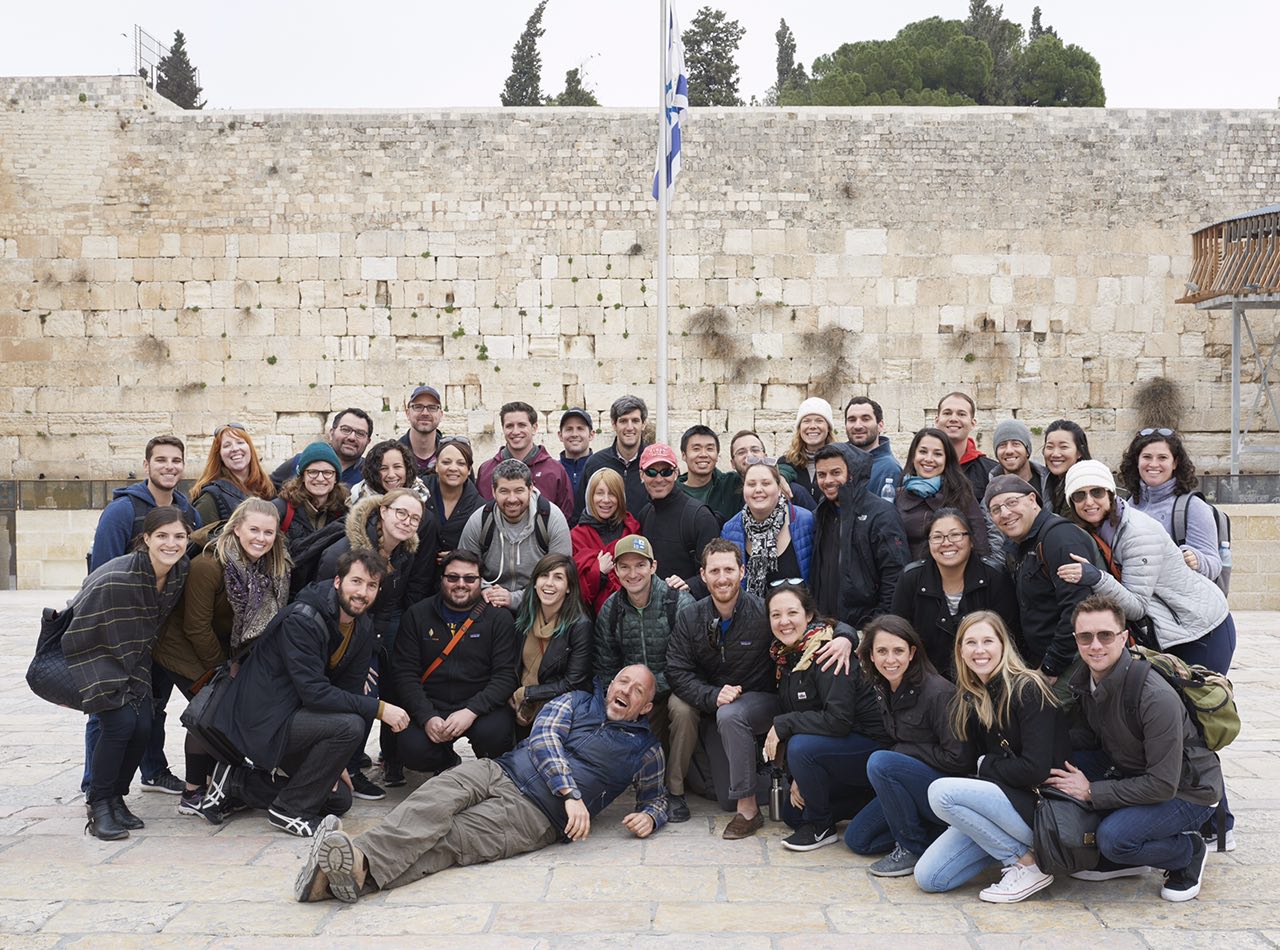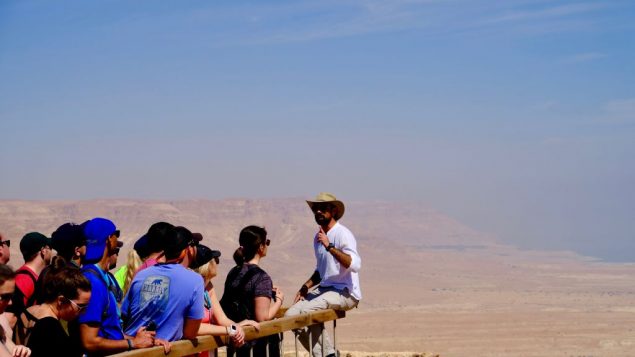Learning with Honeymoon Israel: A Series on Insights from Leaders in the Field
May 10th, 2021
As a Foundation that wants to always learn—one of our internal values is Hitlamdoot—we need to hear directly from leaders and practitioners in the field. Particularly at this moment, understanding what these individuals are experiencing, thinking, doing, and planning is integral to building our team’s knowledge base about the many subfields that makeup the broader world of Jewish education and engagement.
In this vein, representatives from different grantee-partners are speaking with the Foundation each month in Learning Sessions. While initially we planned for these sessions to be entirely internal, the insights and perspectives we are hearing from grantee-partners will be interesting and informative for others as well. We continue to approach our work with Kavanah, intention, to always elevate the efforts of others who help us pursue our mission. And we look forward to sharing brief recaps of each Learning Session. Read previous recaps on learning sessions with Daniel Septimus, CEO of Sefaria, Deborah Meyer, founder and CEO, and Rabbi Tamara Cohen, VP of Program Strategy, Moving Traditions, Sarah Levin, CEO of JIMENA and Rabbi Benjamin Berger, Vice President of Jewish Education, Hillel International.
Learning Session Guests: Mike Wise and Avi Rubel, Co-CEOs, Honeymoon Israel (HMI)
Honeymoon Israel’s vision is that every committed couple with at least one Jewish partner will possess the knowledge, inspiration, support system, and sense of belonging to build a family with meaningful connections to Jewish life and the Jewish people, thereby enhancing and strengthening the Jewish community.
For many young couples, there’s no easy way into Jewish life, especially during those critical years when they’re in permanent relationships and deciding how to shape their lives and family.
Honeymoon Israel (HMI) offers a way in through immersive group travel to Israel that lets couples encounter and explore history, tradition, and identity on their own terms. HMI engages couples in an open-ended inquiry into how they connect to Jewish life and how they’ll incorporate Jewish values and traditions into their families. Couples are offered space to explore for themselves how they can develop and experience community.
How It All Began
 Mike Wise and Avi Rubel conceptualized HMI after the 2013 Pew report on the American Jewish population, which noted the high rate of interfaith marriage and was often defined as a problem in the Jewish community. Mike and Avi wanted to define it as an opportunity to engage young couples by creating a welcoming community for them. Many couples in this life stage do not yet have other couple friends; rather, they often have individual friends from other life experiences. HMI wanted to engage couples while they were still making decisions about their families and their futures—and whether they envisioned a connection to the Jewish community as being a part of that.
Mike Wise and Avi Rubel conceptualized HMI after the 2013 Pew report on the American Jewish population, which noted the high rate of interfaith marriage and was often defined as a problem in the Jewish community. Mike and Avi wanted to define it as an opportunity to engage young couples by creating a welcoming community for them. Many couples in this life stage do not yet have other couple friends; rather, they often have individual friends from other life experiences. HMI wanted to engage couples while they were still making decisions about their families and their futures—and whether they envisioned a connection to the Jewish community as being a part of that.
In selecting the first cities with which HMI would engage, Mike and Avi were deliberate. They mapped the population, paying close attention to the age range, local Jewish community, and other facts on the ground. They wanted to make sure there was a community to support the couples after the trip. As Avi and Mike explained:
HMI’s primary audience is what we call ‘roamers,’ those on the edge of Jewish life who are not necessarily involved, but have questions about their faith and future. We seek them out and look to create a feeling within these couples that ‘we need this; this is for us.’
Importantly, HMI wants its cohort of trips to mirror the communities from where the trips emanate. On most tips this means that 60-75 percent of couples are interfaith. HMI brings all couples together for the Israel experience, creating a sense of community and welcome that some of the couples have not previously experiences.
Why Co-CEOs?
Just like a marriage or any serious relationship, Mike and Avi both put a great deal of work into this partnership. They trust each other and like each other “most of the time.” They point out that with a trusted co-CEO they:
While they recognize this is not ideal for every individual, they encourage people to consider the benefits that come with this leadership structure.
What about DEI (Diversity, Equity and Inclusion)?
Diversity of all kinds is important to HMI, which has an external consultant helping the organization pursue DEI-related goals. HMI works to ensure that anyone is able to travel on their trips. They are also expanding their board and their staff to include more people of color and working towards increasing the diversity of the couples who travel with HMI.
to ensure that anyone is able to travel on their trips. They are also expanding their board and their staff to include more people of color and working towards increasing the diversity of the couples who travel with HMI.
HMI wants people to bring their “whole selves” into this Jewish community, and make people feel that, with the HMI experience, they “don’t need to check any part of themselves at the door.” They continue to gauge whether this message is being received.
The Pandemic
Mike and Avi share that one silver lining of the pandemic is the newly formed Israel Travel Alliance, which includes over 40 similar Israel trip organizations that first focused on how to maintain their organizations when travel ceased. Today, the group continues to meet and learn from each other in important areas including training, staff, guides and other key elements of travel. HMI sees the light at the end of the tunnel and hopes to offer 32-36 groups next year; it is cautiously and optimistically planning to restart trips in November (for social dynamics, it is important that trips have 15-20 couples).
Another silver lining of the pandemic was that HMI could focus exclusively on community engagement post-trip. They reflect:
Our virtual events attract many group alumni who say that their ‘Honeymoon friends are my community.’ In Chicago, one of HMI’s rabbis led a virtual baby naming for a young family and their HMI friends; the new parents said this would not have happened without HMI. Another couple told us they “felt lucky” that their HMI trip happened just before the pandemic as the couple friends made on their trip became part of their “Covid community.”
The Future for HMI
 HMI is focused on controlled, intentional growth and ensuring they can deliver the trips and programs that best serve their groups. Currently HMI says no to three couples for every one they accept nationally; they don’t want to add more trips unless they’re set up for meaningful post-trip follow-up, which includes staffing and support on the ground. HMI also has more communities that want to partner, but HMI continues to be deliberate in the communities they select to ensure that the trip is not just an empty experience, but fulfills their goal:
HMI is focused on controlled, intentional growth and ensuring they can deliver the trips and programs that best serve their groups. Currently HMI says no to three couples for every one they accept nationally; they don’t want to add more trips unless they’re set up for meaningful post-trip follow-up, which includes staffing and support on the ground. HMI also has more communities that want to partner, but HMI continues to be deliberate in the communities they select to ensure that the trip is not just an empty experience, but fulfills their goal:
…to make young couples of all backgrounds feel welcome in the Jewish community and inspire them to incorporate Jewish values and traditions into their lives in their own way.
Having more demand than supply is a good thing, according to Avi. He notes that is does raise important questions about the population being neglected. Why haven’t other startups launched to focus on these couples that HMI can’t take? Teens and parents with young kids are engaged in the Jewish community, but what about this population? He wonders why other start-ups haven’t launched to handle the couples that HMI can’t take—and believes this is an important area for focus in the future.